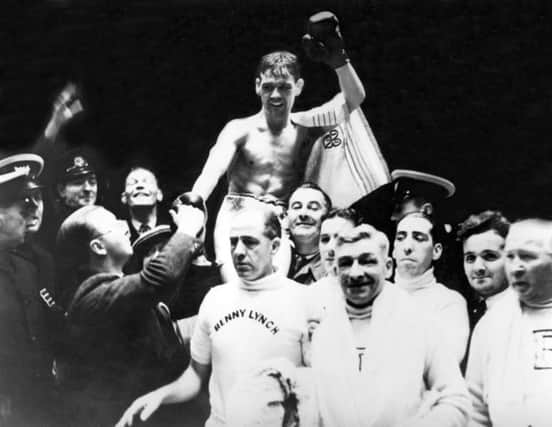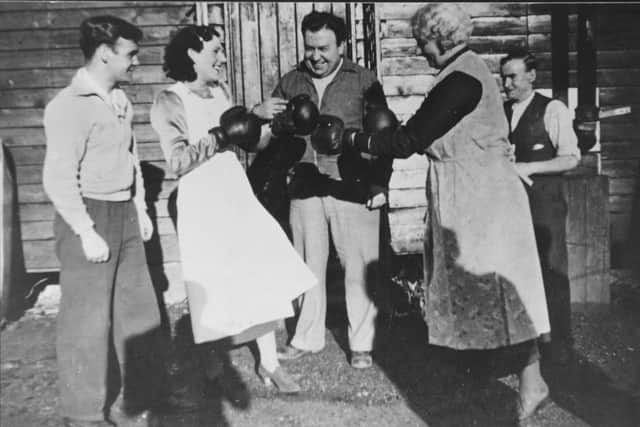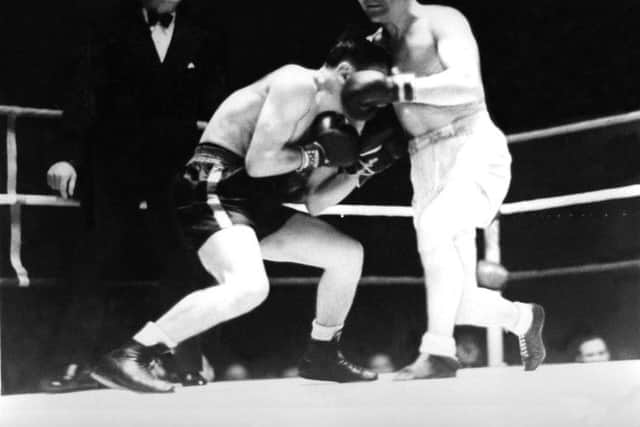Robert Carlyle backs Benny Lynch statue campaign


Benny Lynch was a world champion flyweight boxer from the Gorbals whose rags-to-riches-to-rags story remains one of the most poignant in the history of Scottish sport.
Now a campaign to erect a statue of the fighter in Glasgow has attracted support from actor Robert Carlyle and author Irvine Welsh.
Advertisement
Hide AdAdvertisement
Hide AdWhat started as an online fundraiser last year has been gaining momentum in recent months. Organisers hope to raise £100,000 for a monument to Lynch, who died aged 33 in 1946, with his home district and Central Station both touted as possible locations.


Lynne Lees, who started the campaign, said: “His early years were tough but he came from a community who saw his talent and helped him nurture it. He fought his way from the streets to the ring and in turn conquered the world.”
Lynch was born in 1913 in a tenement in Florence Street and reportedly learned his fighting skills as a teenager in the boxing booths which were popular at street carnivals in the inter-war period.
Fighting at the flyweight level, he won the Scottish title in 1934 against Ken Campbell.
He rose to national attention the following year when he took on British and European champion Jackie Brown in two well-publicised fights. A first bout in March at the Kelvin Hall was scored a draw, and Lynch was rated as the underdog in some quarters when the two met again in Manchester six months later.


Thousands of Scots travelled south to support their man at Belle Vue Stadium, and backed by a raucous crowd, ‘the wee man from the Gorbals’ floored his opponent eight times before the bout was stopped in the second round.
Then, as now, the rules governing boxing were opaque at best and Lynch would have to wait two years before he was offered a world title fight. The date was January 9, 1937, and the venue was the Empire Pool in London, which would later become Wembley Arena.
It was there that the legendary Scottish boxer defeated his Filipino rival Small Montana over 15 gruelling rounds to finally be recognised on both sides of the Atlantic as the finest operator in the classic eight-stone division.
Advertisement
Hide AdAdvertisement
Hide Ad

When Lynch and his entourage arrived back at Central Station the following day, a crowd of 100,000 was there to greet him.
He was just 23 at the time and the biggest sporting superstar his country had yet known. Just over nine years later, on 8 August 1946, Lynch’s story would end tragically.
Having lost the biggest fight of his life, against chronic alcoholism, he died in Glasgow’s Southern General Hospital from pneumonia at the age of just 33. More than 2000 people attended his funeral.
Benny’s legend would live on, however, and there have been several theatre and television plays telling the story of his short life as well as innumerable books.


Among the industry players who have shown an interest in bringing the boxer’s story to the big screen is Robert Carlyle.
“I’ve always loved the idea of a statue for Benny,” he said in a statement. “I cannot think of anyone, past or present from the city of Glasgow, who deserves it more.
“I’ve been an admirer of Benny Lynch for more years than I care to remember. Even though he never saw him fight, he was a great hero of my father. My grandfather on the other hand saw him fight on several occasions. His stories have been handed down from him to my father, from my father to me, and from me to my kids who are as familiar with the name Benny Lynch as they are with any present sportsman.”
Lynch was elected to the Ring Magazine hall of fame in 1986 and the International Boxing Hall of Fame in 1998.